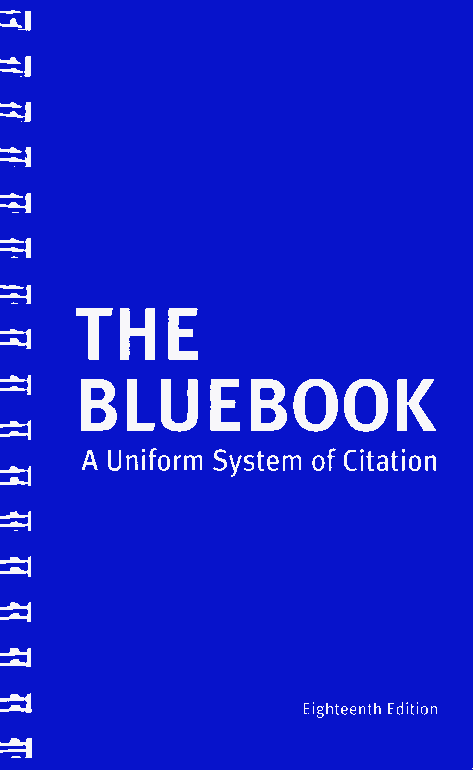The Volokh Conspiracy
Mostly law professors | Sometimes contrarian | Often libertarian | Always independent
Judge Richard Posner explains why we should "burn all copies of the Bluebook"

In a recent article in the ABA Journal, Judge Richard Posner - who is probably the nation's most influential federal judge outside the Supreme Court - is quoted as saying that we should "burn all copies of the Bluebook," the standard system of legal citation produced by a consortium of leading law reviews:
Posner… dislikes The Bluebook. He has his own instructions on citation format, consisting of two pages in an office manual he gives to his law clerks.
"The first thing to do," Posner writes, "is burn all copies of the Bluebook, in its latest edition 560 pages of rubbish, a terrible time waster for law clerks employed by judges who insist, as many do, that the citations in their opinions conform to the Bluebook."
In general, I am strongly opposed to book burning of any kind. But in this case, I can only say, burn, baby, burn! Like Posner, I have long argued that the Bluebook and its hundreds of pages of useless, time-wasting rules should be abolished and replaced with a much simpler citation system, perhaps similar to those used in other academic fields. It would save lawyers, legal scholars, and law students enormous amounts of time and effort.
Judge Posner laid out his critique of the Bluebook in greater detail in this Yale Law Journal article. In my view, however, he was a little too generous to the Bluebook when he compared it to the pyramids of ancient Egypt:
While the pyramids were excessive relative to the pharaohs' actual needs, they at least have tremendous esthetic value. By contrast, I doubt that tourists will will ever flock to see copies of the Bluebook. Indeed, rare is the person who ever opens up the Bluebook when he doesn't absolutely have to.
On a somewhat more serious note, Judge Posner has shared with me a copy of the simplified citation system that he and his clerks use in drafting opinions, and has authorized me to post it online. I have done so here; it is actually a little over five pages. I may not agree with every one of Judge Posner's rules. But his approach is a vast improvement over the Bluebook. It simplifies without losing any of the information a reader needs to know to figure out what source is being cited.
To adapt his system for use by scholars, it might be necessary to change a few things and add a handful of additional rules to deal with sources that are sometimes used by scholars, but rarely by judges. There are also a few places where I might prefer to simplify even more than Posner did.
Reasonable people can disagree about exactly how an ideal citation system should be structured. But it should, at the very least, be far shorter, simpler, and less mind-numbing than the monstrosity that is the Bluebook. If we want to make American legal citation great again, we could do a lot worse than follow in Judge Posner's footsteps.
UPDATE: I should perhaps note that, following Judge Posner's example from his own books, I have used a highly simplified citation system in my own books, such as The Grasping Hand: Kelo v. City of New London and the Limits of Eminent Domain. While people can (and do!) criticize my books on other grounds, no one has ever complained about the lack of bluebooking, even though these books cite a wide range of different kinds of sources.
UPDATE #2: In the original version of this post, I indicated that the quote by Judge Posner about the Bluebook was from an interview with the ABA Journal. However, the quote was in fact taken by the author of the ABA Journal article from a previous article by Posner in the Green Bag. I apologize for the mistake, which has now been corrected.


Show Comments (0)